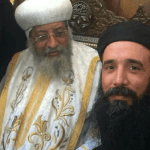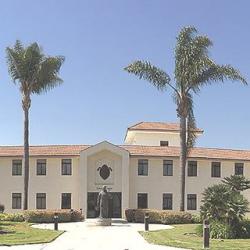This is something remarkable: a new book on the diaconate, with a prologue by Pope Francis.
The book is not yet available in English, but has been translated from Italian into Spanish—and Deacon John Donaghy (the only permanent deacon in the Diocese of Santa Rosa de Copán, Honduras!) graciously offered to translate it for my readers. It’s published below. To Deacon John, I can only offer a humble and heartfelt “Gracias!” I’m sure I speak for a lot of deacons when I say we look forward to reading the full text of this important book in English.
++
NOTE OF TRANSLATOR:
Deacon Enzo Petrolino, a married permanent deacon of the diocese of Reggio Calabria-Bova, Italy, has published a new book on the diaconate , not yet available in English, The Diaconate in the Thought of Pope Francis: A Poor Church for the Poor. He is president of the Council of Deacons in Italy and has published and edited a number of publications on the diaconate. Pope Francis wrote a prologue to this new book. This is a translation of the Spanish translation found in Servir en las periferias, October 2017, no. 30.
http://serviren.info/prologo-del-papa-francisco-al-libro-del-diacono-italiano-enzo-petrolino-el-diaconado-en-el-pensamiento-del-papa-francisco-una-iglesia-pobre-para-los-pobres/
Prologue by Pope Francis
In the last few decades, the Church has lived an extraordinary spiritual and pastoral growth, due to the reception in depth of the documents of the Second Vatican Council. Many papal documents have been published, beginning with Blessed Paul VI, Saint John Paul II, and Pope Benedict XVI, which have explained the Council in detail. In this context, the permanent diaconate has recovered the roots of its presence in the community of believers and even in a more extensive social fabric, on the one hand acquiring the consciousness of the service of Christ and the people and on the other hand receiving a new impetus through the orientations provided, during these years, by the Magisterium for the reflection in common by the church.
I want to thank the author, Enzo Petrolino, president of the Council of the Diaconate in Italy, who, thinking of the Jubilee of Deacons… wished to collect my texts related to the diaconate, including those from my episcopal ministry in Buenos Aires as well as the most recent which I have published as bishop of Rome.
Today it is interesting and important to analyze in depth the development of the permanent diaconate, from its renewal until the present, to understand its path better, through an interpretation which uses all the doctrinal, pastoral, and exhortative richness which has characterized the discourses addressed by the popes, in various occasions, to the deacons of the whole word in these years after the Council.
The Church encounters in the permanent diaconate the expression and, at the same time, the vital impetus to be converted into a visible sign of the diakonia of Christ the Servant in human history. The sensitivity for the formation of a diaconal conscience can even be considered the fundamental theme which ought to permeate Christian communities.
The service of the diaconal ministry finds its identity in the act of evangelizing, as John Paul II said in a homily in 1979, addressed to a group of new deacons, and reminding them of the words of the handing to them of the Book of the Gospels during their ordination: “Receive the Gospel of Christ, whose herald you have become. Believe what you read, teach what you believe, and practice what you teach.” So then, you are called to carry the words of the Acts of the Apostles in your heart. In your role as deacons you have come to be and are associates of Peter, John, and all the apostles. You help in the apostolic ministry and share in its proclamation. As the apostles, you also ought to feel impelled to proclaim the resurrection of the Lord Jesus in word and works. Also you ought to experience the urgency to do good, to be of service in the name of Jesus crucified and risen, [and] the urgency to carry the Word of God to the life of his holy people.
Therefore, as I wrote in the Apostolic Exhortation Evangelii Gaudium – The Joy of the Gospel – it is good for priests, deacons and lay people to meet periodically to go over together the resources that make preaching more attractive.
Another important aspect is praying for vocations. All the faithful ought to assume their responsibilities relative to the care and discernment of vocation, including in reference to the ministry of the deacon. When the apostles were looking for someone to assume the place of Judas Iscariot, Peter gathered together 120 persons ((cf. Acts 1:15); and for the vocation of the seven deacons he called together the group of disciples (cf. Acts 6:1). Even today, the Christian community is always present in the birth of vocations, in their formation, and in their perseverance (cf. EG, 107)
In addition, all the diakonia of the church – of which the ministerial diaconate is sign and instrument – has its heart beating in the Eucharistic Ministry and is made real in the first place in the service of the poor who carry in themselves the face of Christ who suffers. The deacon Lawrence, who was the administrator of the diocese of Rome, when the Emperor asked him to bring the treasures of the diocese to pay something [to the emperor] and save himself, showed him the poor. The poor are the riches of the Church. If you have your own bank, if you are the owner of the bank, but your heart is poor and not attached to money, it will always be a heart at the service of others. Poverty is this type of detachment in order to server those in need , to serve others.
Therefore, a poor Church for the poor. I have already mentioned that during my election, Cardinal Hummes, the archbishop emeritus of Sao Paolo who was also the Prefect Emeritus of the Congregation for the Clergy, was sitting next to me. When I was elected Pope, he gave me a hug, he kissed me, and told me: “Don’t forget the poor!” And immediately, thinking of the poor, Saint Francis of Assisi came to mind. And thus also there came to my heart the name, Francis of Assisi, who was, according to tradition, a deacon. For me, he is the person of poverty, the person of peace, the person who loves and cares for creation. He is the person who ought to inspire deacons.
During the various stages of the diaconal path in these years, the papal magisterium has left a mark, at the same clarifying and stimulating regarding the faithful obedience and the joy which ought to accompany the mission of the deacon in the church and in the world today, extending the directives given by the Council, its scope, and the horizons of its action.
Those who work to promote the ministry of the deacon and who exercise it will be able to find in his different writings of the author published by LEV [Libreria Editrice Vaticana] and particularly the documents brought together in the Enchiridion [Enchiridion sul Diaconato/Compendium on the Diaconate], interesting ideas for a better understanding and deepening – even in the pastoral sense – of the identity and the role of permanent deacons in this time in which we are living.
The ministry of the deacon, thus, has to be seen as an integral part of the work achieved by the Council with the purpose of preparing the Church, in its integrity, to a renewed apostolate in today’s world. Deacons, rightfully, can be defined as pioneers of the new civilization of love, as Pope John Paul II liked to say. This is my longing, and I wish you a good and fruitful reading [of this book].
Vatican City, July 31, 2017
Francis












